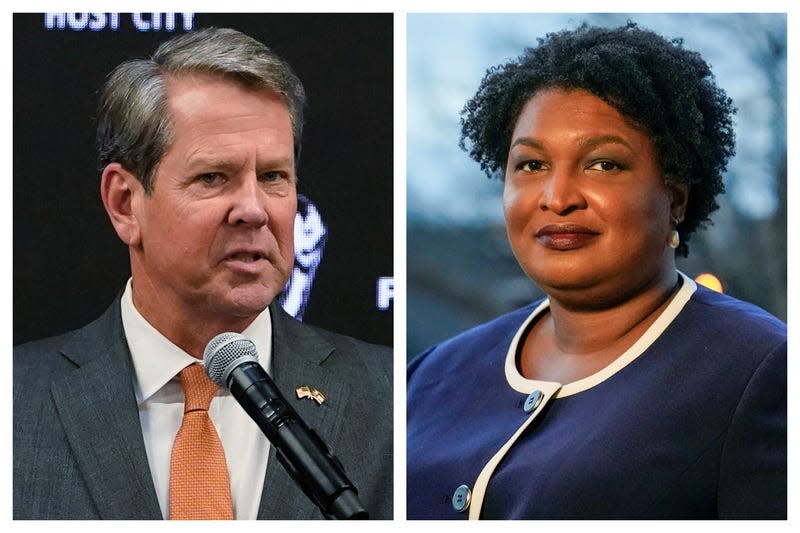Huh? A Federal Judge Ruled That Georgia Isn't Disenfranchising Voters

- Oops!Something went wrong.Please try again later.
- Oops!Something went wrong.Please try again later.
With a little more than a month to go before Georgia voters choose their next governor, a federal judge ruled against the voting rights group started by Stacey Abrams, the Democratic nominee, in a lawsuit over whether the state engaged in voter suppression.
U.S. District Judge Steve Jones, an Obama appointee, handed an L in the lawsuit to Fair Fight Action, the voting rights nonprofit founded by Abrams after her 2018 lo to Gov. Brian Kemp. Kemp, was then Georgia’s secretary of state and is again Abrams’ opponent in the gubernatorial race although this time he’s running as an incumbent.
Read more
Aside from Halle Bailey, Here Are Other Black Disney Actors and Characters We Love
Move Over King Charles, Here Are More Black Men We Call Royalty [UPDATED]
The crux of the lawsuit was that a number of voting rules that were put in place by either Kemp while he was secretary of state or by Georgia Republicans illegally made it harder for voters to get registered and cast their ballots. The suit pointed to tactics such as a purge of thousands of registered voters from the rolls and an “exact match” rule that requires voters’ identification to be exactly the same as the information on their voter registration record.
From the Washington Post
Georgia’s “exact match” system placed nearly 50,000 Georgians’ voter registrations on hold before the 2018 election. Abrams’s group argued that the law was racially discriminatory because 70 percent of those whose registrations were suspended were Black.
The case, Fair Fight Action, Inc. v. Raffensperger, challenged a range of issues including the difficulties that naturalized U.S. citizens faced in voting as a result delayed updates in the state’s records. The suit also argued that poll workers received improper or incomplete training about how to cancel the absentee ballots of voters who say they never received them. That led to confusion and frustration at many polling sites in 2018.
Jones ruled that measures challenged in the lawsuit, though, violated neither the constitution or the Voting Rights Act and the Post’s story noted that exact match and other voting rules that Fair Fight Action challenged in the suit have already been replaced by provisions in the state’s 2001 voting law.
The lawsuit, filed in 2018, didn’t directly challenge that law, which critics say is part of a wave of attempts to disenfranchise, Black, Hispanic and women voters, or pretty much anyone unlikely to vote Republican.
Abrams Tweeted on Sunday that the lawsuit still had positive outcomes, including getting 22,000 voter registration reinstated and preventing 2,000 others from being removed in the first place.
We can't overlook the results from this case: the reinstatement of over 22k voters, substantive changes to voting laws, and a platform for voters of color to demand equity.
I won't stop fighting to ensure every vote can be cast, every ballot is counted and every voice is heard. pic.twitter.com/V3IG3HQbZV— Stacey Abrams (@staceyabrams) October 3, 2022
Georgia’s gubernatorial general election is slated for Nov. 8, with early voting starting on Oct. 17.

